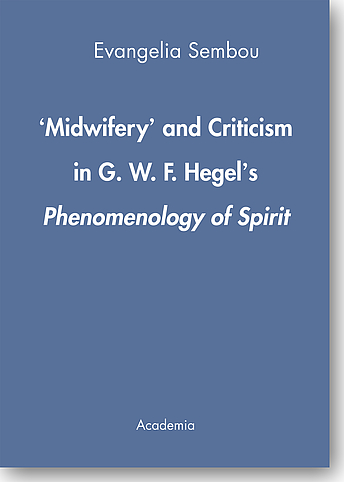Sembou
'Midwifery' and Criticism in G.W.F. Hegel's Phenomenology of Spirit
ISBN 978-3-89665-562-2
This book offers a distinctive interpretation of Hegel's Phenomenology of Spirit. It suggests that Hegel's approach in the 1807 Phenomenology is akin to Socratic 'midwifery'. In Plato's Theaetetus Socrates (the midwife) elicits from Theaetetus his views on the nature of knowledge, without imposing on him his own ideas thereof.
Similarly, in the 1807 Phenomenology Hegel elicits a series of shapes of consciousness and spirit, and uncovers the implications of each one of them. In the same way as Socrates subjected his interlocutor's views to an internal criticism (elenchus) to see whether they were valid or not, Hegel subjects the various 'shapes of consciousness' to an immanent critique, in the course of which each one of them proves to be inadequate on its own terms.
Like the Platonic dialogue Theaetetus, Hegel's Phenomenology does not end in a positive doctrine. So the Phenomenology of Spirit introduces us to philosophical science in a negative sense, that is, by showing what philosophical science is not. In this way it prepares the ground for science proper, namely, Hegel's Science of Logic.


